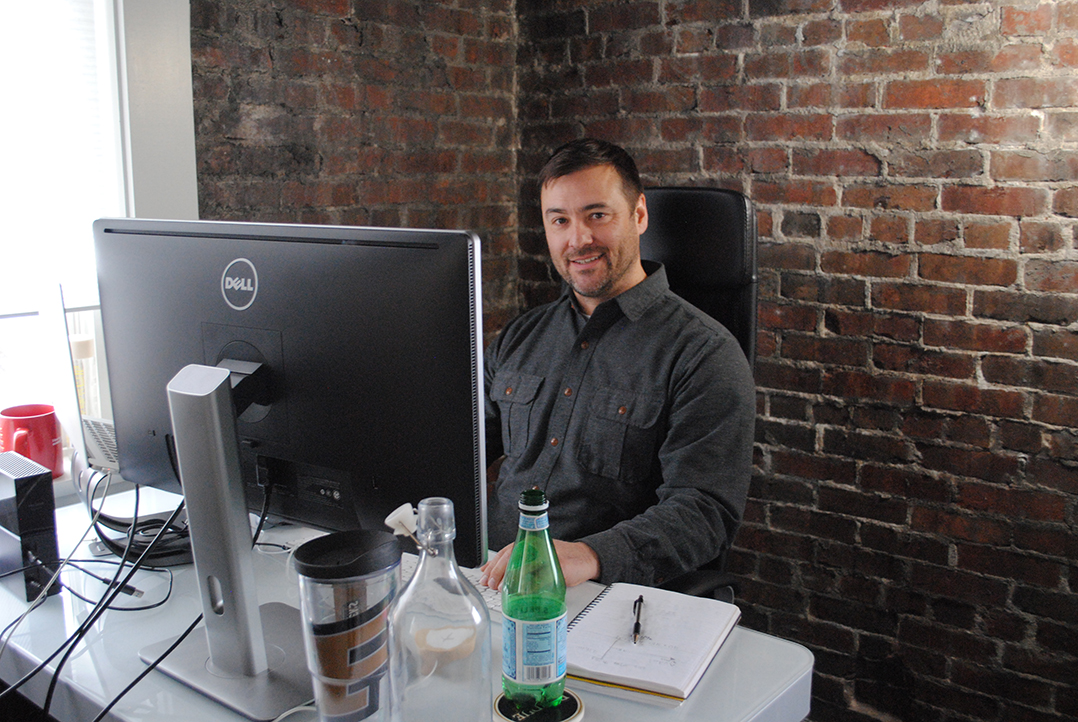A Geist-area resident has lowered the DFW rate, or students receiving a D, F or withdrawing from class, by 50 percent with his digital-learning courseware program, Perceivant, founded in 2012.
Brian Rowe said there’s a lot of pressure in the U.S. on students and teachers at colleges to have a lower DFW rate.

“College and student success have been historically lower in the United States for student graduation rates compared to other English-speaking countries. Quite significantly less,” Rowe said. “We have a lot of students obviously needing to go to school and do really well, and there’s just this gap as we try to enroll more and more students into school and get them out on time.
“There’s been a lot of pressure on the institutions in general to really just perform better and help students have the best possible success rate.”
Perceivant develops digital courses with online sources to immerse students in the subject they are learning through self-assessment and problem solving. It also creates a dashboard for teachers to see which students are struggling with certain content.
“The key to our solution is the course design, so instead of when you set up a course in a learning management system, you probably really only kind of understand the software,” Rowe said. “We use tools like guided learning, which basically helps students prepare through all the material in an interactive way, where they read some, watch videos and answer questions and work through small segments of the content. And at the end, they are given a study guide showing where they did good or bad to help them follow up.
“The aspirational goal, that’s what Perceivant is all about, is help giving those early students the best chance at long-term success.”

Rowed said a reduced DFW rate creates funding for schools.
“That is really revenue for the school if (reducing the DFW rate is) happening because you have a chance with that student to engage longer with the university,” Rowe said.
Through Perceivant, Rowe said teachers can be better prepared for how to adjust lesson plans to target what students struggle with the most.
“We give a dashboard to the teacher on how many students did the prep work and what areas they struggled in or did well in,” Rowe said. “So, before the teacher walks into the class, they can adjust what they’re going to talk about that day. They can also look at a list of high-risk students to see what ways they are struggling and talk to them about those specific areas.”
Perceivant is in 17 universities nationwide, including Kennesaw State University in Kennesaw, Ga.
Kandice Porter, chair and associate professor for the Dept. of Health Promotion and Physical Education at KSU, said the university began using Perceivant in 2014 after it redesigned its WELL 1000: Foundations for Healthy Living course.
“KSU and Perceivant collaborated on developing WELL 1000 courseware that reflected our belief that students needed a holistic, skills-based approach in order to adopt or maintain healthy behaviors,” Porter said. “Perceivant was the only publishing company we found that could support our creation of customized content that aligned with course objectives, adult learning theory and best practices in health education. The collaboration has been extremely successful in terms of both students’ academic achievement but also their ability to apply course concepts to their own lives to improve their health.”
For more, visit perceivant.com.
Starting young
Brian Rowe discovered he had a knack for coding at age 13.
“I was a gymnast, which required lots and lots of time, and it didn’t create a lot of time to create other friend relationships outside of gymnastics, and so in non-school or non-gymnastics time, computers were a natural personality fit for me,” he said. “It was available and accessible, and it’s just enjoyable. You tinker for a little while and at some point, in high school, I did realize I wanted to learn how to run a software company.”
Rowe graduated from Purdue University in 1995 and received his MBA in 2000.



